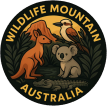BASIC RESCUE INFORMATION FOR INJURED OR ORPHANED SMALLER SPECIES OF WILDLIFE
In the vast and varied landscapes of Australia, each creature plays a vital role in the intricate web of life. Sadly, it’s not uncommon to encounter an injured native animal on our roadsides. If you find yourself in such a situation, and it is safe to do so, please stop and assist the animal. Here’s how you can help:
Be Prepared: A Simple Pillowcase Can Save a Life
For those who frequently travel through Australia’s diverse terrains, keeping a cotton pillowcase in your car’s glove box can be a lifesaver. This seemingly ordinary item becomes an essential tool when you come across a native animal in distress. Smaller animals like possums, bandicoots, small macropods, joeys, or lizards can fit comfortably into a pillowcase, which provides them with a sense of security during a stressful situation. The soft fabric is gentle on their skin, allows for easy breathing, and shields you from potential scratches or bites.
When approaching an injured or distressed animal, move slowly and speak softly to minimise stress. Gently place the pillowcase over the animal, carefully supporting its body as you lift it.
Contacting the Experts: Your Next Step
WIRES Rescue Office can be contacted 24/7 for wildlife information and rescue advice at 1300 094 737, or you can ‘Report a Rescue’ online.
Use these contacts for national wildlife rescues and marine mammal rescues.
Once you have secured the animal, contact a local wildlife rescue organisation or veterinarian immediately. They have the expertise to provide the necessary care and rehabilitation. Handling wildlife requires caution and respect for their natural behaviours, so always prioritise professional assistance.
Alternative Methods: Using Towels and Boxes
A large towel, blanket, or even a jumper can be used. Approach the animal quietly, cover it, and scoop it up swiftly yet gently. Place the animal in a cardboard box lined with a towel or blanket, which gives it something to cling to and prevents sliding. Ensure the box has ventilation holes and is securely closed to prevent escape. Place the box in a quiet, dark area of your car, not the boot, to avoid harmful exhaust fumes. Do not attempt to feed or give water, as this can cause harm.
Special Considerations for Marsupials
Female marsupials, such as kangaroos, wallabies, possums, bandicoots, and gliders, carry their young in pouches. If you find an injured or deceased female, check her pouch for a joey. If a joey is present, keep it in the pouch and contact a wildlife organisation like WIRES at 1300 094 737 immediately.
Please avoid removing the joey from its mother’s teat, as doing so incorrectly can cause severe harm to the joey’s mouth. If you can, take both the mother and joey to your nearest veterinarian for care. Alternatively, contact your local wildlife organisation for their assistance.
If the pouch is empty, search the surrounding area as the joey might have been ejected during the accident.
If you find a joey outside the pouch, warmth is crucial. Wrap it snugly in a clean cloth or beanie to mimic the safety and warmth of a mother’s pouch. Contact a wildlife organisation straight away for guidance.
Your Role in Conservation
By taking these steps, you are not only helping an individual animal but also contributing to the broader conservation of Australia’s unique wildlife. Every small action counts, and your care and attention can make a significant difference in the lives of these remarkable creatures. Always remember to contact a wildlife professional for further assistance, as they have the expertise to provide the best care possible. Your efforts play a vital role in ensuring that Australia’s precious wildlife continues to thrive in their natural habitats.
